- Home
- W. W. Jacobs
The Monkey's Paw and Other Tales Of Mystery and the Macabre Page 21
The Monkey's Paw and Other Tales Of Mystery and the Macabre Read online
Page 21
“Much?” inquired the bewildered woman.
“Much?” repeated Mr Cox, frantically. “I’ve killed him and hidden the body. Now I must escape and fly the country.”
The bewilderment on Mrs Cox’s face increased; she was trying to reconcile her husband’s statement with a vision of a trim little figure which she had seen ten minutes before with its head tilted backwards studying the sign post, and which she was now quite certain was Mr Piper.
“Are you sure he’s dead?” she inquired.
“Dead as a door nail,” replied Mr Cox, promptly. “I’d no idea he was such a delicate little man. What am I to do? Every moment adds to my danger. I must fly. How much money have you got?”
The question explained everything. Mrs Cox closed her lips with a snap and shook her head.
“Don’t play the fool,” said her husband, wildly; “my neck’s in danger.”
“I haven’t got anything,” asseverated Mrs Cox. “It’s no good looking like that, Henry, I can’t make money.”
Mr Cox’s reply was interrupted by a loud knock at the hall door, which he was pleased to associate with the police. It gave him a fine opportunity for melodrama, in the midst of which his wife, rightly guessing that Mrs Berry had returned according to arrangement, went to the door to admit her. The visitor was only busy two minutes on the door mat, but in that time Mrs Cox was able in low whispers to apprise her of the state of affairs.
“That’s my uncle all over,” said Mrs Berry, fiercely; “that’s just the mean trick I should have expected of him. You leave ’em to me, my dear.”
She followed her friend into the drawing room, and having shaken hands with Mr Cox, drew her handkerchief from her pocket and applied it to her eyes.
“She’s told me all about it,” she said, nodding at Mrs Cox, “and it’s worse than you think, much worse. It isn’t a broker’s man—it’s my poor uncle, Joseph Piper.”
“Your uncle!” repeated Mr Cox, reeling back; “the broker’s man your uncle?”
Mrs Berry sniffed. “It was a little joke on our part,” she admitted, sinking into a chair and holding her handkerchief to her face. “Poor uncle; but I dare say he’s happier where he is.”
Mr Cox wiped his brow, and then, leaning his elbow on the mantelpiece, stared at her in well-simulated amazement.
“See what your joking has led to,” he said, at last. “I have got to be a wanderer over the face of the earth, all on account of your jokes.”
“It was an accident,” murmured Mrs Berry, “and nobody knows he was here, and I’m sure, poor dear, he hadn’t got much to live for.”
“It’s very kind of you to look at it in that way, Susan, I’m sure,” said Mrs Cox.
“I was never one to make mischief,” said Mrs Berry. “It’s no good crying over spilt milk. If uncle’s killed he’s killed, and there’s an end of it. But I don’t think it’s quite safe for Mr Cox to stay here.”
“Just what I say,” said that gentleman, eagerly; “but I’ve got no money.”
“You get away,” said Mrs Berry, with a warning glance at her friend, and nodding to emphasise her words; “leave us some address to write to, and we must try and scrape twenty or thirty pounds to send you.”
“Thirty,” said Mr Cox, hardly able to believe his ears.
Mrs Berry nodded. “You’ll have to make that do to go on with,” she said, pondering. “And as soon as you get it you had better get as far away as possible before poor uncle is discovered. Where are we to send the money?”
Mr Cox affected to consider.
“The ‘White Horse,’ Newstead,” he said at length, in a whisper; “better write it down.”
Mrs Berry obeyed; and this business being completed, Mr Cox, after trying in vain to obtain a shilling or two cash in hand, bade them a pathetic farewell and went off down the path, for some reason best known to himself, on tiptoe.
For the first two days Messrs. Cox and Piper waited with exemplary patience for the remittance, the demands of the landlord, a man of coarse fibre, being met in the meantime by the latter gentleman from his own slender resources. They were both reasonable men, and knew from experience the difficulty of raising money at short notice; but on the fourth day, their funds being nearly exhausted, an urgent telegram was dispatched to Mrs Cox.
Mr Cox was alone when the reply came, and Mr Piper, returning to the inn parlour, was amazed and disstressed at his friend’s appearance. Twice he had to address him before he seemed to be aware of his presence, and then Mr Cox, breathing hard and staring at him strangely, handed him the message.
“Eh?” said Mr Piper, in amaze, as he read slowly:” Wo—need—send—money—Uncle—Joseph—has—come—back.— BERRY.’ What does it mean? Is she mad?”
Mr Cox shook his head, and taking the paper from him, held it at arm’s length and regarded it at an angle.
“How can you be there when you’re supposed to be dead?” he said, at length.
“How can I be there when I’m here?” rejoined Mr Piper, no less reasonably.
Both gentlemen lapsed into a wondering silence, devoted to the attempted solution of their own riddles. Finally Mr Cox, seized with a bright idea that the telegram had got altered in transmission, went off to the post-office and dispatched another, which went straight to the heart of things:—
“Don’t—understand—is—Uncle—Joseph—alive?”
A reply was brought to the inn parlour an hour later on. Mr Cox opened it, gave one glance at it, and then with a suffocating cry handed it to the other. Mr Piper took it gingerly, and his eyebrows almost disappeared as he read:—
“Yes—smoking—in—drawing room.”
His first strong impression was that it was a case for the Psychical Research Society, but this romantic view faded in favour of a simple solution, propounded by Mr Cox with much crispness, that Mrs Berry was leaving the realms of fact for those of romance. His actual words were shorter, but the meaning was the same.
“I’ll go home and ask to see you,” he said, fiercely; “that’ll bring things to a head, I should think.”
“And she’ll say I’ve gone back to London, perhaps,” said Mr Piper, gifted with sudden clearness of vision. “You can’t show her up unless you take me with you, and that’ll show us up. That’s her artfulness; that’s Susan all over.”
“She’s a wicked, untruthful woman,” gasped Mr Cox.
“I never did like Susan,” said Mr Piper, with acerbity, never.
Mr Cox said he could easily understand it, and then, as a forlorn hope, sat down and wrote a long letter to his wife, in which, after dwelling at great length on the lamentable circumstances surrounding the sudden demise of Mr Piper, he bade her thank Mrs Berry for her well-meant efforts to ease his mind, and asked for the immediate dispatch of the money promised.
A reply came the following evening from Mrs Berry herself. It was a long letter, and not only long, but badly written and crossed. It began with the weather, asked after Mr Cox’s health, and referred to the writer’s; described with much minuteness a strange headache which had attacked Mrs Cox, together with a long list of the remedies prescribed and the effects of each, and wound up in an out-of-the-way corner, in a vein of cheery optimism which reduced both readers to the verge of madness.
“Dear Uncle Joseph has quite recovered, and, in spite of a little nervousness—he was always rather timid—at meeting you again, has consented to go to the ‘White Horse’ to satisfy you that he is alive. I dare say he will be with you as soon as this letter—perhaps help you to read it.”
Mr Cox laid the letter down with extreme care, and, coughing gently, glanced in a sheepish fashion at the goggle-eyed Mr Piper.
For some time neither of them spoke. Mr Cox was the first to break the silence and—when he had finished—Mr Piper said “Hush.”
“Besides, it does no good,” he added.
“It does me good,” said Mr Cox, recommencing.
Mr Piper held up his hand with a startled gesture fo
r silence. The words died away on his friend’s lips as a familiar voice was heard in the passage, and the next moment Mrs Berry entered the room and stood regarding them.
“I ran down by the same train to make sure you came, uncle,” she remarked. “How long have you been here?”
Mr Piper moistened his lips and gazed wildly at Mr Cox for guidance.
“‘Bout—’bout five minutes,” he stammered.
“We were so glad dear uncle wasn’t hurt much,” continued Mrs Berry, smiling, and shaking her head at Mr Cox; “but the idea of your burying him in the geranium bed; we haven’t got him clean yet.”
Mr Piper, giving utterance to uncouth noises, quitted the room hastily, but Mr Cox sat still and stared at her dumbly.
“Weren’t you surprised to see him?” inquired his tormentor.
“Not after your letter,” said Mr Cox, finding his voice at last, and speaking with an attempt at chilly dignity. “Nothing could surprise me much after that.”
Mrs Berry smiled again.
“Ah, I’ve got another little surprise for you,” she said, briskly. “Mrs Cox was so upset at the idea of being alone while you were a wanderer over the face of the earth, that she and I have gone into partnership. We have had a proper deed drawn up, so that now there are two of us to look after things. Eh? What did you say?”
“I was just thinking,” said Mr Cox.
18
The Castaway
Mrs John Boxer stood at the door of the shop with her hands clasped on her apron. The short day had drawn to a close, and the lamps in the narrow little thoroughfares of Shinglesea were already lit. For a time she stood listening to the regular beat of the sea on the beach some half-mile distant, and then with a slight shiver stepped back into the shop and closed the door.
The little shop with its wide-mouthed bottles of sweets was one of her earliest memories. Until her marriage she had known no other home, and when her husband was lost with the North Star some three years before, she gave up her home in Poplar and returned to assist her mother in the little shop.
In a restless mood she took up a piece of needlework, and a minute or two later put it down again. A glance through the glass of the door leading into the small parlour revealed Mrs Gimpson, with a red shawl round her shoulders, asleep in her easy-chair.
Mrs Boxer turned at the clang of the shop bell, and then, with a wild cry, stood gazing at the figure of a man standing in the door-way. He was short and bearded, with oddly shaped shoulders, and a left leg which was not a match; but the next moment Mrs Boxer was in his arms sobbing and laughing together.
Mrs Gimpson, whose nerves were still quivering owing to the suddenness with which she had been awakened, came into the shop; Mr Boxer freed an arm, and placing it round her waist kissed her with some affection on the chin.
“He’s come back!” cried Mrs Boxer, hysterically.
“Thank goodness,” said Mrs Gimpson, after a moment’s deliberation.
“He’s alive!” cried Mrs Boxer. “He’s alive!”
She half-dragged and half-led him into the small parlour, and, thrusting him into the easy-chair lately vacated by Mrs Gimpson, seated herself upon his knee, regardless in her excitement that the rightful owner was with elaborate care selecting the most uncomfortable chair in the room.
“Fancy his coming back!” said Mrs Boxer, wiping her eyes. “How did you escape, John? Where have you been? Tell us all about it.”
Mr Boxer sighed. “It ’ud be a long story if I had the gift of telling of it,” he said, slowly, “but I’ll cut it short for the present. When the North Star went down in the South Pacific most o’ the hands got away in the boats, but I was too late. I got this crack on the head with something falling on it from aloft. Look here.”
He bent his head, and Mrs Boxer, separating the stubble with her fingers, uttered an exclamation of pity and alarm at the extent of the scar; Mrs Gimpson, craning forward, uttered a sound which might mean anything—even pity.
“When I come to my senses,” continued Mr Boxer, “the ship was sinking, and I just got to my feet when she went down and took me with her. How I escaped I don’t know. I seemed to be choking and fighting for my breath for years, and then I found myself floating on the sea and clinging to a grating. I clung to it all night, and next day I was picked up by a native who was paddling about in a canoe, and taken ashore to an island, where I lived for over two years. It was right out o’ the way o’ craft, but at last I was picked up by a trading schooner named the Pearl, belonging to Sydney, and taken there. At Sydney I shipped aboard the Marston Towers, a steamer, and landed at the Albert Docks this morning.”
“Poor John,” said his wife, holding on to his arm. “How you must have suffered!”
“I did,” said Mr Boxer. “Mother got a cold?” he inquired, eyeing that lady.
“No, I ain’t,” said Mrs Gimpson, answering for herself. “Why didn’t you write when you got to Sydney?”
“Didn’t know where to write to,” replied Mr Boxer, staring. “I didn’t know where Mary had gone to.”
“You might ha’ wrote here,” said Mrs Gimpson.
“Didn’t think of it at the time,” said Mr Boxer. “One thing is, I was very busy at Sydney, looking for a ship. However, I’m ’ere now.”
“I always felt you’d turn up some day,” said Mrs Gimpson. “I felt certain of it in my own mind. Mary made sure you was dead, but I said ‘no, I knew better.’”
There was something in Mrs Gimpson’s manner of saying this that impressed her listeners unfavourably. The impression was deepened when, after a short, dry laugh a propos of nothing, she sniffed again—three times.
“Well, you turned out to be right,” said Mr Boxer, shortly.
“I gin’rally am,” was the reply; “there’s very few people can take me in.”
She sniffed again.
“Were the natives kind to you?” inquired Mrs Boxer, hastily, as she turned to her husband.
“Very kind,” said the latter. “Ah! you ought to have seen that island. Beautiful yellow sands and palm-trees; cocoa-nuts to be ’ad for the picking, and nothing to do all day but lay about in the sun and swim in the sea.”
“Any public-’ouses there?” inquired Mrs Gimpson.
“Cert’nly not,” said her son-in-law. “This was an island—one o’ the little islands in the South Pacific Ocean.”
“What did you say the name o’ the schooner was?” inquired Mrs Gimpson.
“Pearl” replied Mr Boxer, with the air of a resentful witness under cross-examination.
“And what was the name o’ the captin?” said Mrs Gimpson.
“Thomas—Henery—Walter—Smith,” said Mr Boxer, with somewhat unpleasant emphasis.
“An’ the mate’s name?”
“John Brown,” was the reply.
“Common names,” commented Mrs Gimpson, “very common. But I knew you’d come back all right—I never ’ad no alarm. ‘He’s safe and happy, my dear,’ I says. ‘He’ll come back all in his own good time.’”
“What d’you mean by that?” demanded the sensitive Mr Boxer. “I come back as soon as I could.”
“You know you were anxious, mother,” interposed her daughter. “Why, you insisted upon our going to see old Mr Silver about it.”
“Ah! but I wasn’t uneasy or anxious afterwards,” said Mrs Gimpson, compressing her lips.
“Who’s old Mr Silver, and what should he know about it?” inquired Mr Boxer.
“He’s a fortune-teller,” replied his wife.
“Reads the stars,” said his mother-in-law.
Mr Boxer laughed—a good ringing laugh. “What did he tell you?” he inquired.
“Nothing,” said his wife, hastily.
“Ah!” said Mr Boxer, waggishly, “that was wise of ’im. Most of us could tell fortunes that way.”
“That’s wrong,” said Mrs Gimpson to her daughter, sharply. “Right’s right any day, and truth’s truth. He said that he knew all about John and wh
at he’d been doing, but he wouldn’t tell us for fear of ’urting our feelings and making mischief.”
“Here, look ’ere,” said Mr Boxer, starting up; “I’ve ’ad about enough o’ this. Why don’t you speak out what you mean? I’ll mischief ’im, the old humbug. Old rascal.”
“Never mind, John,” said his wife, laying her hand upon his arm. “Here you are safe and sound, and as for old Mr Silver, there’s a lot o’ people don’t believe in him.”
“Ah! they don’t want to,” said Mrs Gimpson, obstinately. “But don’t forget that he foretold my cough last winter.”
“Well, look ’ere,” said Mr Boxer, twisting his short, blunt nose into as near an imitation of a sneer as he could manage, “I’ve told you my story and I’ve got witnesses to prove it. You can write to the master of the Marston Towers if you like, and other people besides. Very well, then; let’s go and see your precious old fortune-teller. You needn’t say who I am; say I’m a friend, and tell Mm never to mind about making mischief, but to say right out where I am and what I’ve been doing all this time. I have my ‘opes it’ll cure you of your superstitiousness.”
“We’ll go round after we’ve shut up, mother,” said Mrs Boxer. “We’ll have a bit o’ supper first and then start early.”
Mrs Gimpson hesitated. It is never pleasant to submit one’s superstitions to the tests of the unbelieving, but after the attitude she had taken up she was extremely loath to allow her son-in-law a triumph.
“Never mind, we’ll say no more about it,” she said, primly, “but I ’ave my own ideas.”
“I dessay,” said Mr Boxer; “but you’re afraid for us to go to your old fortune-teller. It would be too much of a show-up for ’im.”
“It’s no good your trying to aggravate me, John Boxer, because you can’t do it,” said Mrs Gimpson, in a voice trembling with passion.
“O’ course, if people like being deceived they must be,” said Mr Boxer; “we’ve all got to live, and if we’d all got our common sense fortune-tellers couldn’t. Does he tell fortunes by tea-leaves or by the colour of your eyes?”

_preview.jpg) Sailor's Knots (Entire Collection)
Sailor's Knots (Entire Collection)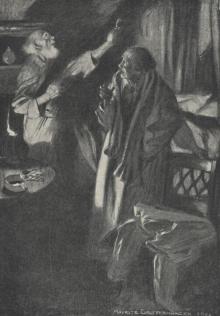 The Monkey's Paw
The Monkey's Paw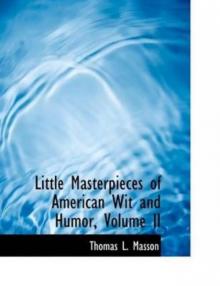 Little Masterpieces of American Wit and Humor, Volume II
Little Masterpieces of American Wit and Humor, Volume II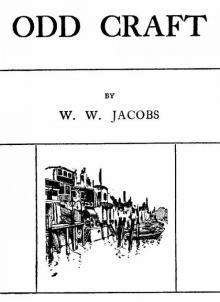 Odd Craft, Complete
Odd Craft, Complete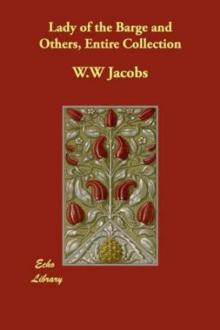 The Lady of the Barge and Others, Entire Collection
The Lady of the Barge and Others, Entire Collection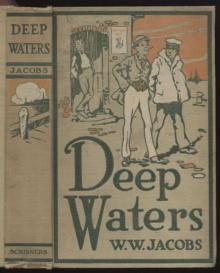 Deep Waters, the Entire Collection
Deep Waters, the Entire Collection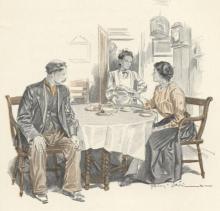 Three at Table
Three at Table Light Freights
Light Freights Night Watches
Night Watches The Three Sisters
The Three Sisters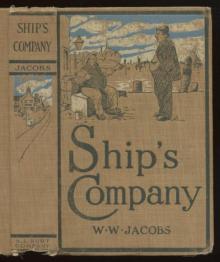 Ship's Company, the Entire Collection
Ship's Company, the Entire Collection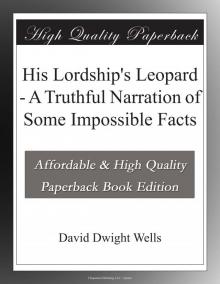 His Lordship's Leopard: A Truthful Narration of Some Impossible Facts
His Lordship's Leopard: A Truthful Narration of Some Impossible Facts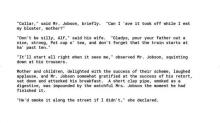 Fine Feathers
Fine Feathers My Man Sandy
My Man Sandy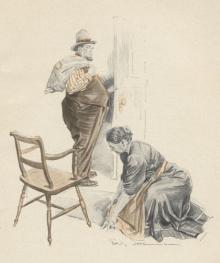 Self-Help
Self-Help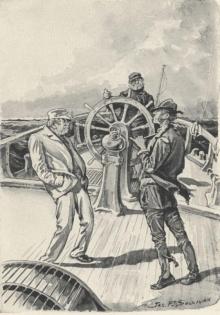 Captains All and Others
Captains All and Others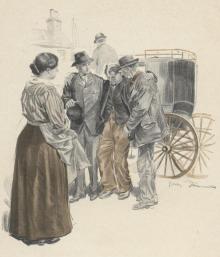 Back to Back
Back to Back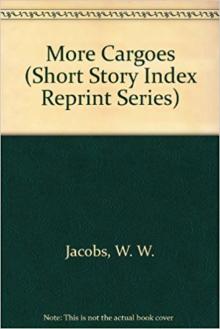 More Cargoes
More Cargoes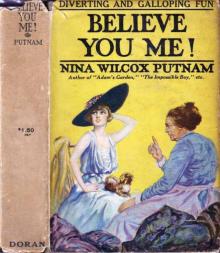 Believe You Me!
Believe You Me!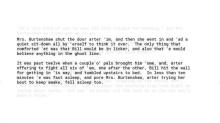 Keeping Up Appearances
Keeping Up Appearances The Statesmen Snowbound
The Statesmen Snowbound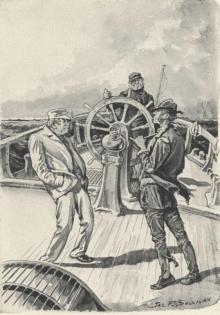 An Adulteration Act
An Adulteration Act The Old Soldier's Story: Poems and Prose Sketches
The Old Soldier's Story: Poems and Prose Sketches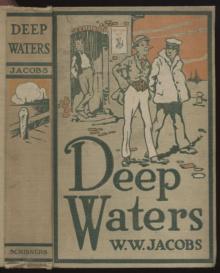 Husbandry
Husbandry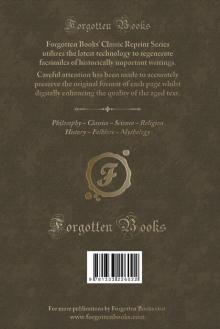 Love and the Ironmonger
Love and the Ironmonger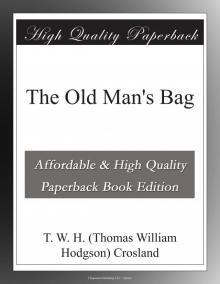 The Old Man's Bag
The Old Man's Bag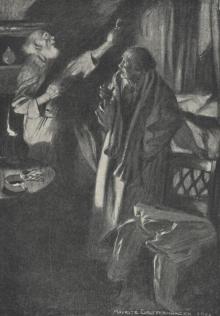 Dirty Work
Dirty Work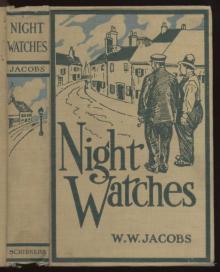 Easy Money
Easy Money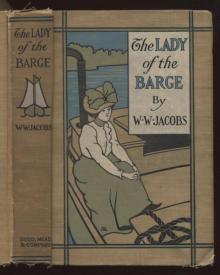 The Lady of the Barge
The Lady of the Barge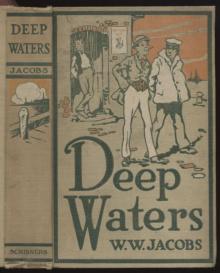 Bedridden and the Winter Offensive
Bedridden and the Winter Offensive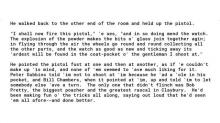 Odd Charges
Odd Charges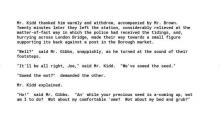 Friends in Need
Friends in Need Watch-Dogs
Watch-Dogs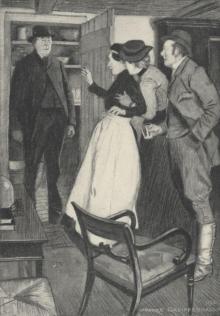 Cupboard Love
Cupboard Love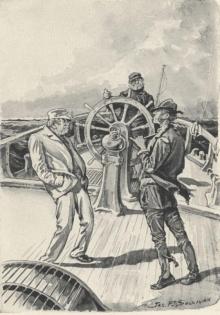 Captains All
Captains All A Spirit of Avarice
A Spirit of Avarice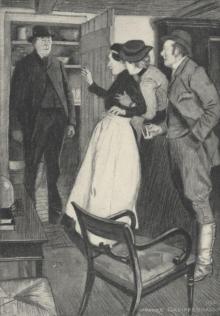 The Nest Egg
The Nest Egg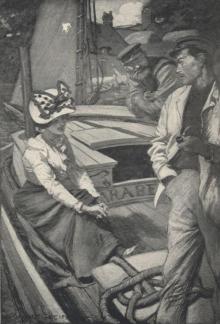 The Guardian Angel
The Guardian Angel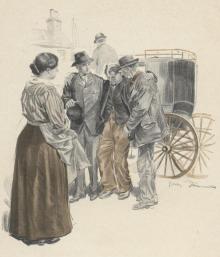 The Convert
The Convert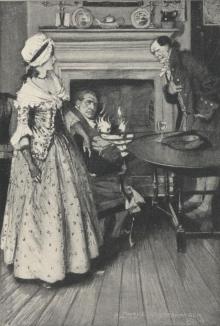 Captain Rogers
Captain Rogers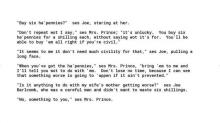 Breaking a Spell
Breaking a Spell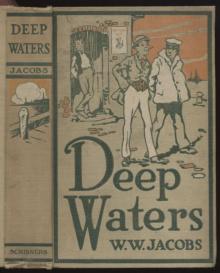 Striking Hard
Striking Hard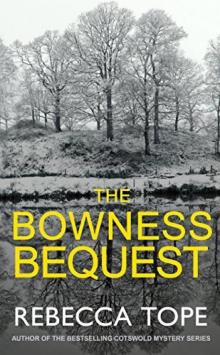 The Bequest
The Bequest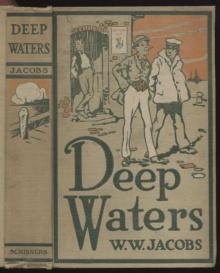 Shareholders
Shareholders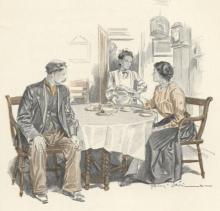 The Weaker Vessel
The Weaker Vessel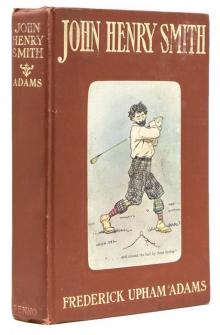 John Henry Smith
John Henry Smith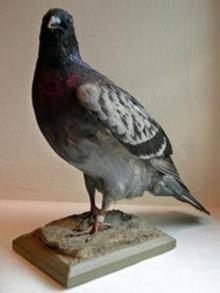 Four Pigeons
Four Pigeons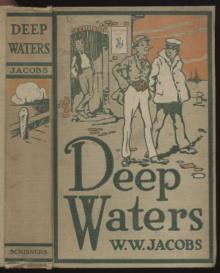 Made to Measure
Made to Measure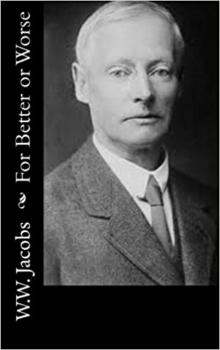 For Better or Worse
For Better or Worse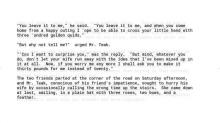 Fairy Gold
Fairy Gold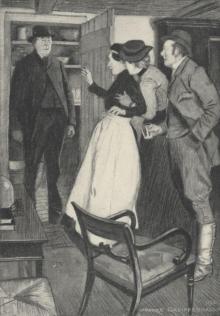 Family Cares
Family Cares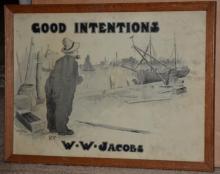 Good Intentions
Good Intentions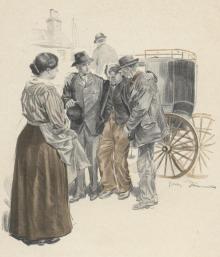 Prize Money
Prize Money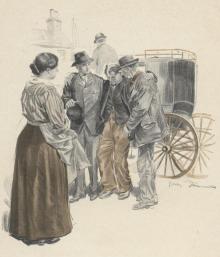 The Temptation of Samuel Burge
The Temptation of Samuel Burge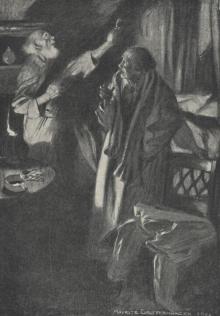 The Madness of Mr. Lister
The Madness of Mr. Lister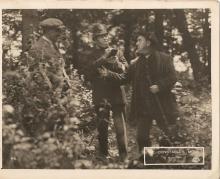 The Constable's Move
The Constable's Move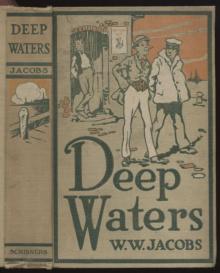 Paying Off
Paying Off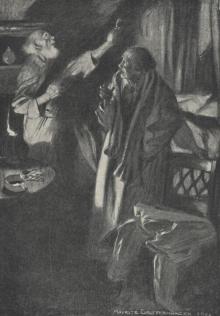 Double Dealing
Double Dealing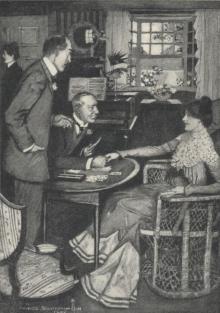 A Mixed Proposal
A Mixed Proposal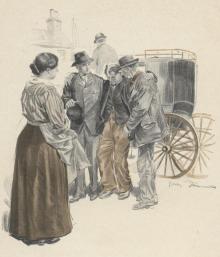 Bill's Paper Chase
Bill's Paper Chase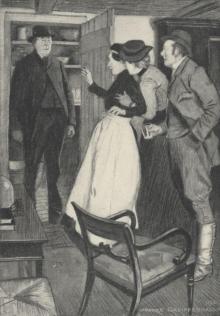 The Changing Numbers
The Changing Numbers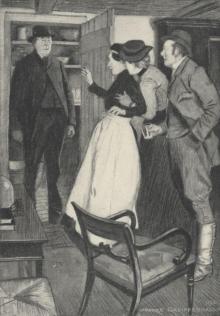 Over the Side
Over the Side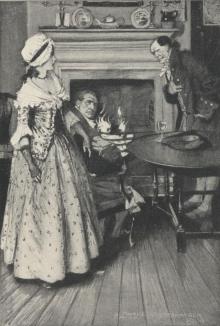 Lawyer Quince
Lawyer Quince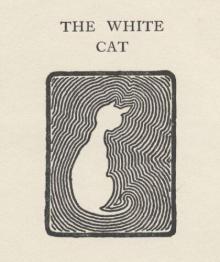 The White Cat
The White Cat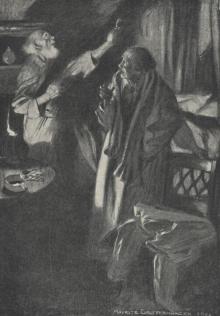 Admiral Peters
Admiral Peters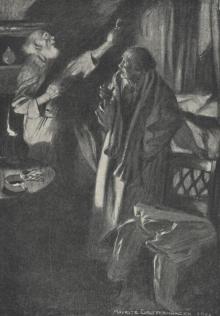 The Third String
The Third String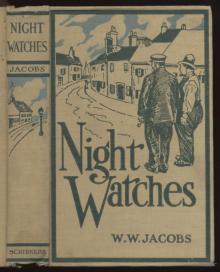 The Vigil
The Vigil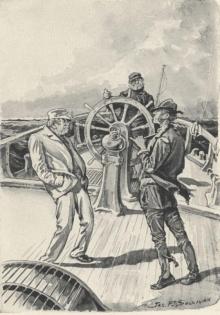 Bill's Lapse
Bill's Lapse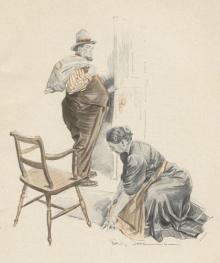 His Other Self
His Other Self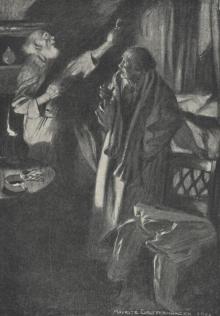 Matrimonial Openings
Matrimonial Openings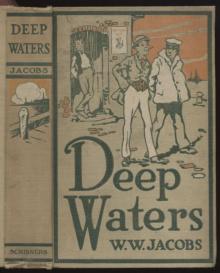 The Substitute
The Substitute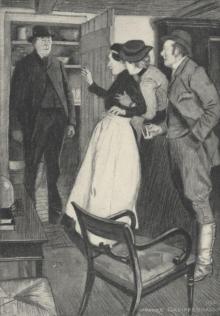 Deserted
Deserted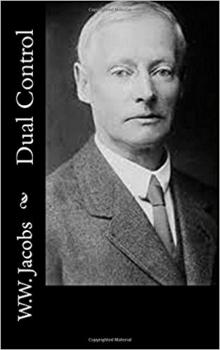 Dual Control
Dual Control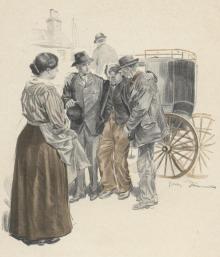 Homeward Bound
Homeward Bound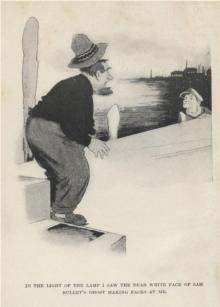 Sam's Ghost
Sam's Ghost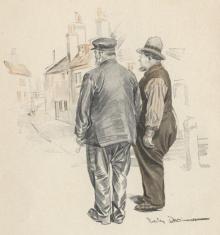 The Unknown
The Unknown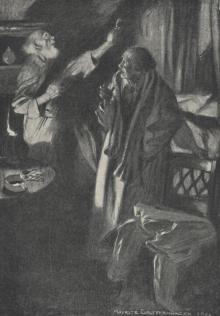 Stepping Backwards
Stepping Backwards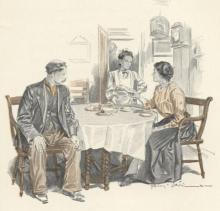 Sentence Deferred
Sentence Deferred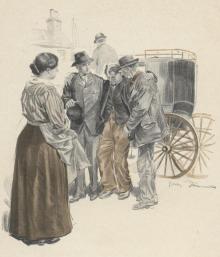 The Persecution of Bob Pretty
The Persecution of Bob Pretty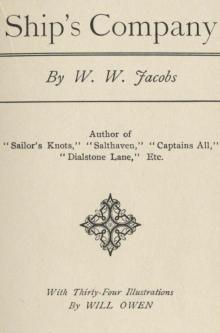 Skilled Assistance
Skilled Assistance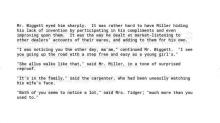 A Golden Venture
A Golden Venture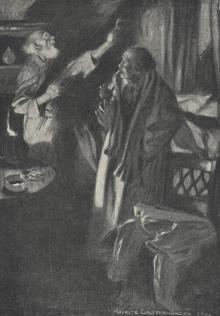 Establishing Relations
Establishing Relations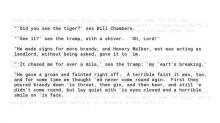 A Tiger's Skin
A Tiger's Skin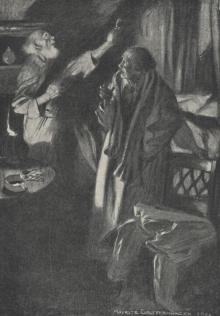 Bob's Redemption
Bob's Redemption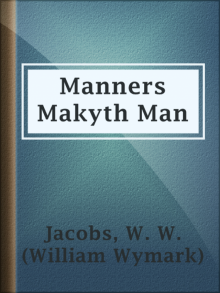 Manners Makyth Man
Manners Makyth Man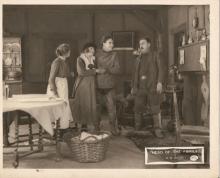 The Head of the Family
The Head of the Family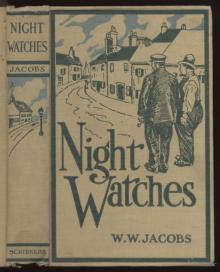 The Understudy
The Understudy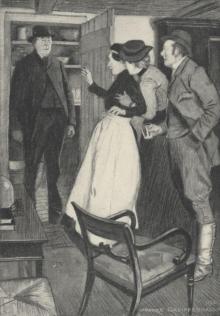 Odd Man Out
Odd Man Out Once Aboard the Lugger-- The History of George and his Mary
Once Aboard the Lugger-- The History of George and his Mary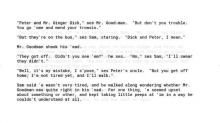 Peter's Pence
Peter's Pence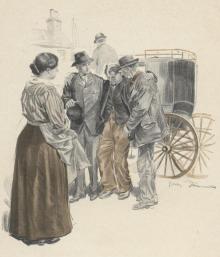 Blundell's Improvement
Blundell's Improvement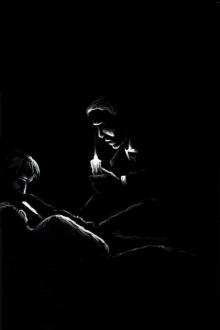 The Toll-House
The Toll-House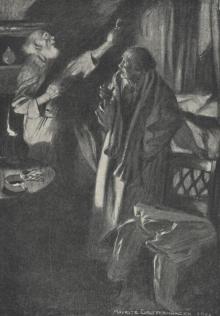 Dixon's Return
Dixon's Return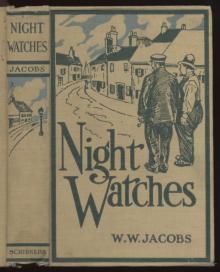 Keeping Watch
Keeping Watch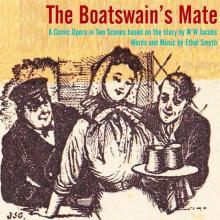 The Boatswain's Mate
The Boatswain's Mate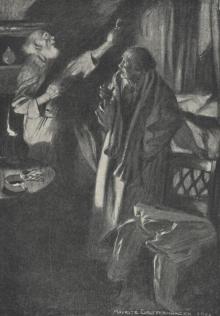 The Castaway
The Castaway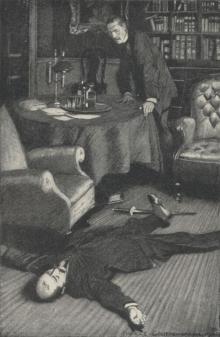 In the Library
In the Library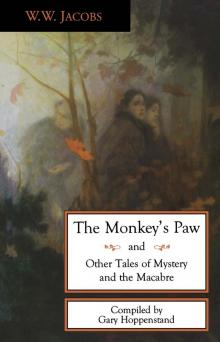 The Monkey's Paw and Other Tales Of Mystery and the Macabre
The Monkey's Paw and Other Tales Of Mystery and the Macabre